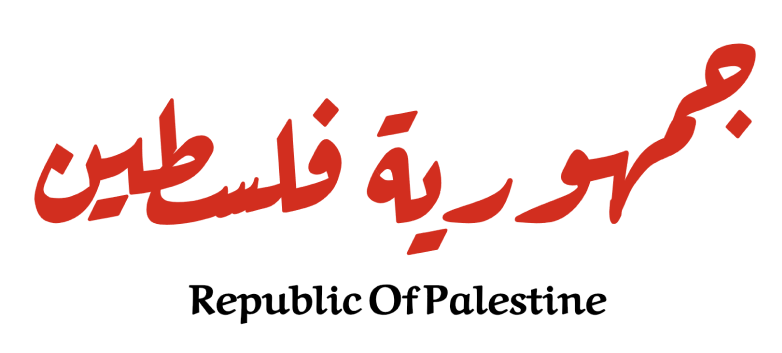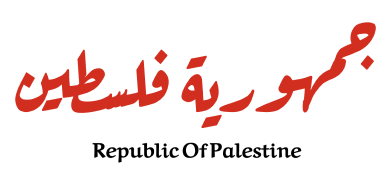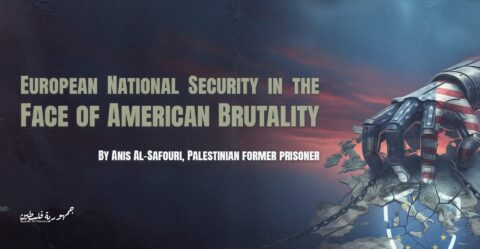By Ricardo Mahrez Mufdi – Palestinian Union in Latin America (UPAL)
In recent weeks, several countries, including Spain, Norway, Ireland, Slovenia, and others, have announced their official recognition of the State of Palestine. For some, this is a historic milestone; for others, it is a symbolic victory after decades of occupation and suffering.
But behind these diplomatic declarations lies a complex strategic and geopolitical calculus. The fundamental question is, what are the real interests driving this wave of recognitions?
A Palestinian State, or an Exit Strategy for Europe and the West?
First, we must understand that these recognitions are not happening in a vacuum. They come amidst an ongoing genocidal war on Gaza, where Israel has failed to crush Palestinian resistance, particularly Hamas. Neither bombings, sieges, nor forced displacements have succeeded in breaking the will of a people resisting with dignity.
Faced with this failure, Western powers, led by the United States and Europe, are now seeking a “Plan B.” They can no longer credibly repeat the rhetoric of “Israel’s right to self-defense.” They need an alternative that preserves their influence, weakens the resistance, and calms the growing public pressure erupting in their own streets.
This is where recognition of the “State of Palestine” enters the scene.
But the deception lies in the fact that the state they are recognizing has no borders, no army, and no sovereignty over its land. It controls neither its airspace nor its waters, cannot protect its people, and lacks political unity. In reality, it is merely an administrative entity under occupation. This is not a real state.
Whitewashing Europe’s Image
These recognitions are also being used to polish Europe’s image. After months of complicity in genocide, whether through silence, military support, or selectively targeting the resistance with sanctions, they are now attempting a symbolic balancing act.
They speak of a “two-state solution” as if it remains a viable option, despite Israel having fragmented and colonized the land to the point of rendering the idea unrealistic.
They recognize the “State of Palestine,” yet impose no sanctions on Israel, continue arms sales, and do nothing to halt settlement expansion. In other words, they are recognizing a Palestinian state while leaving the material reality of occupation untouched.
Is the Real Goal to Replace the Resistance?
Another alarming dimension is the entity being recognized. Most of these countries still consider the Palestinian Authority as the “legitimate representative” of the Palestinian people, despite its corruption, loss of legitimacy, and ongoing security coordination with the occupation.
Are we witnessing an attempt to reshape Palestinian leadership from the outside, sidelining resistance movements such as Hamas and Islamic Jihad?
Is this an effort to establish a superficial, compliant Palestinian state, one that manages the occupation rather than resists it?
If so, this wave of recognitions is not genuine solidarity but a geopolitical maneuver aimed at neutralizing the Palestinian struggle.
The Trap of the Phantom State
The greatest danger is that the world might start treating Palestine as a “recognized state,” while, in reality, it remains occupied, colonized, and besieged.
This legal recognition could be used to freeze the conflict, silence international demands, and shift the responsibility of the occupation onto the victim.
In such a scenario, the Palestinian cause would be reframed, not as a national liberation struggle against colonialism, but as an administrative dispute between “two states.”
History would be erased, apartheid would be whitewashed, and the voices of the martyrs would be silenced.
Conclusion
This wave of recognitions is neither free, nor innocent, nor revolutionary. It is part of a broader effort to rearrange the international political landscape after the West’s moral collapse and the rise of Palestinian resistance.
Diplomatically, these recognitions might carry some value, yes, but we must not be deceived, true liberation will not come from foreign ministries, but from the steadfastness of the Palestinian people in Gaza, the West Bank, and the diaspora.
Unless the Zionist colonial regime is dismantled, no recognition will be complete.
And as long as blood continues to flow in Gaza, no symbolic recognition will ever be enough.






